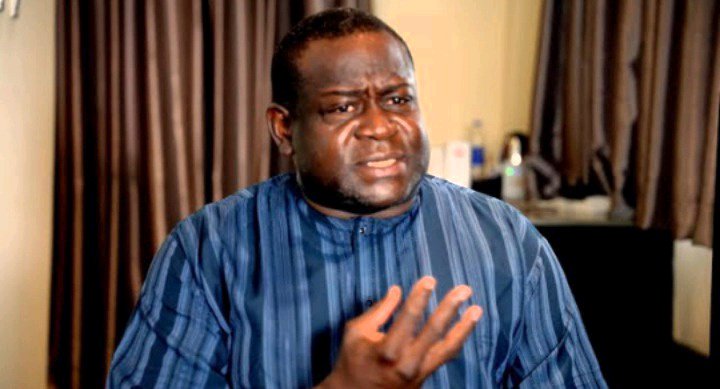Human rights lawyer and former Chairman of the Nigerian Bar Association (NBA) Branch, Barrister Mohammed Tsav, has urged Nigerians to look beyond religion in understanding the country’s persistent security and political challenges.
In an exclusive interview on Symfoni TV from 23:19, Tsav reflected on his personal background and experiences, using his life story to advocate for unity, fairness, and genuine coexistence among people of different faiths.
Speaking candidly about his upbringing, Tsav revealed that his mixed religious heritage shaped his worldview and commitment to tolerance.
“My father was a Muslim, all my brothers are Muslims, and so am I, but my mother is a Christian,” he said.
According to him, growing up in a home where Islam and Christianity coexisted peacefully gave him an appreciation for both faiths and reinforced his belief that religion itself is not the cause of Nigeria’s problems.
“I live in between both faiths, so I know that religion is not our real problem in this country,” he explained. “The issue is not about Muslims or Christians being killed; it is about politics and power struggles disguised as religion.”
Tsav warned against the tendency to label every violent incident as religiously motivated, arguing that both Muslims and Christians have been victims of insecurity and extremism.
He recounted instances of attacks on both churches and mosques, stressing that such tragedies should not be used to inflame divisions or propagate mistrust between communities.
“When churches are attacked, people say Christians are being killed, but when mosques are bombed or imams are attacked, no one says Muslims are being killed,” he noted. “Both sides have suffered. What we need now is sincerity and justice, not blame games.”
The outspoken lawyer said Nigeria’s insecurity crisis is rooted in political manipulation rather than religious intolerance.
He accused some political leaders of exploiting faith-based sentiments to gain power and distract citizens from issues of governance, corruption, and inequality.
He therefore called on the government to ensure impartial investigations into acts of violence and expose the real perpetrators behind the ongoing bloodshed.
“We need a government that is brave enough to tell the truth,” Tsav said. “The killings we see across the country are not about Islam or Christianity; they are the result of greed and the struggle for control. Until we deal with that, peace will remain elusive.”
During the interview, Tsav also spoke fondly about his late father, Abubakar Tsav, a former Commissioner of Police in Lagos State known for his integrity and anti-corruption stance.
The younger Tsav said he is currently writing a book about his father’s life and legacy, describing him as “a disciplined and principled man whose sense of justice shaped my own path in life.”
Reflecting on his years as a lawyer and activist, Tsav emphasized that true unity in Nigeria can only be achieved through fairness and mutual respect among citizens, regardless of faith or ethnicity.
“We cannot build a peaceful nation when leaders exploit religion for political gain,” he warned. “We must rise above those divisions and focus on competence, equality, and national interest.”
He maintained that Nigeria’s diversity should be seen as a strength rather than a weakness, urging both religious leaders and politicians to promote dialogue, inclusion, and accountability.
According to him, peace and progress will only be possible when every Nigerian Muslim or Christian, from the North or South feels equally protected and represented by the state.
Tsav’s comments come at a time of renewed debate over religious representation in government, political appointments, and the management of human rights and security in the country. His message, rooted in his personal story of coexistence, served as both a critique of divisive politics and a call for national reflection.
Explore More News By Using The Button Below.

